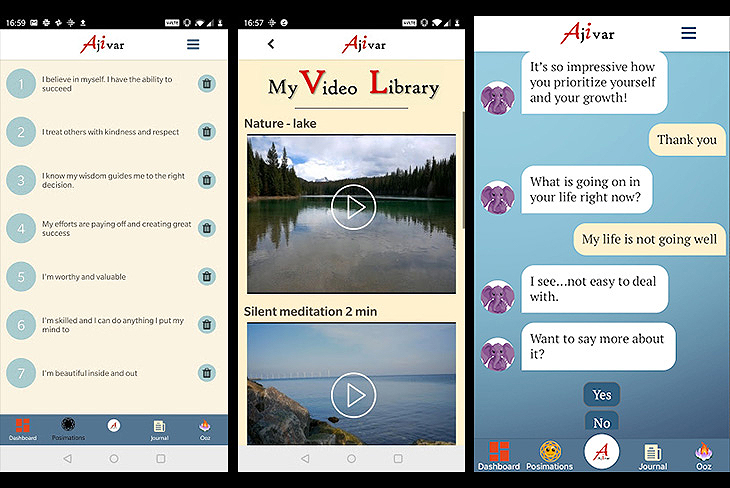“The moment you step outside your zone of comfort is when you start to evolve and develop,” said Dr. Raj Goyal, a physician, engineer and co-founder of Ajivar, a mobile application being launched by UT that uses artificial intelligence to connect users to mindfulness practices. “Ajivar focuses on improving resiliency, emotional intelligence and self-awareness which result in less stress overall, better performance, better interpersonal relationships and greater satisfaction with life.”
